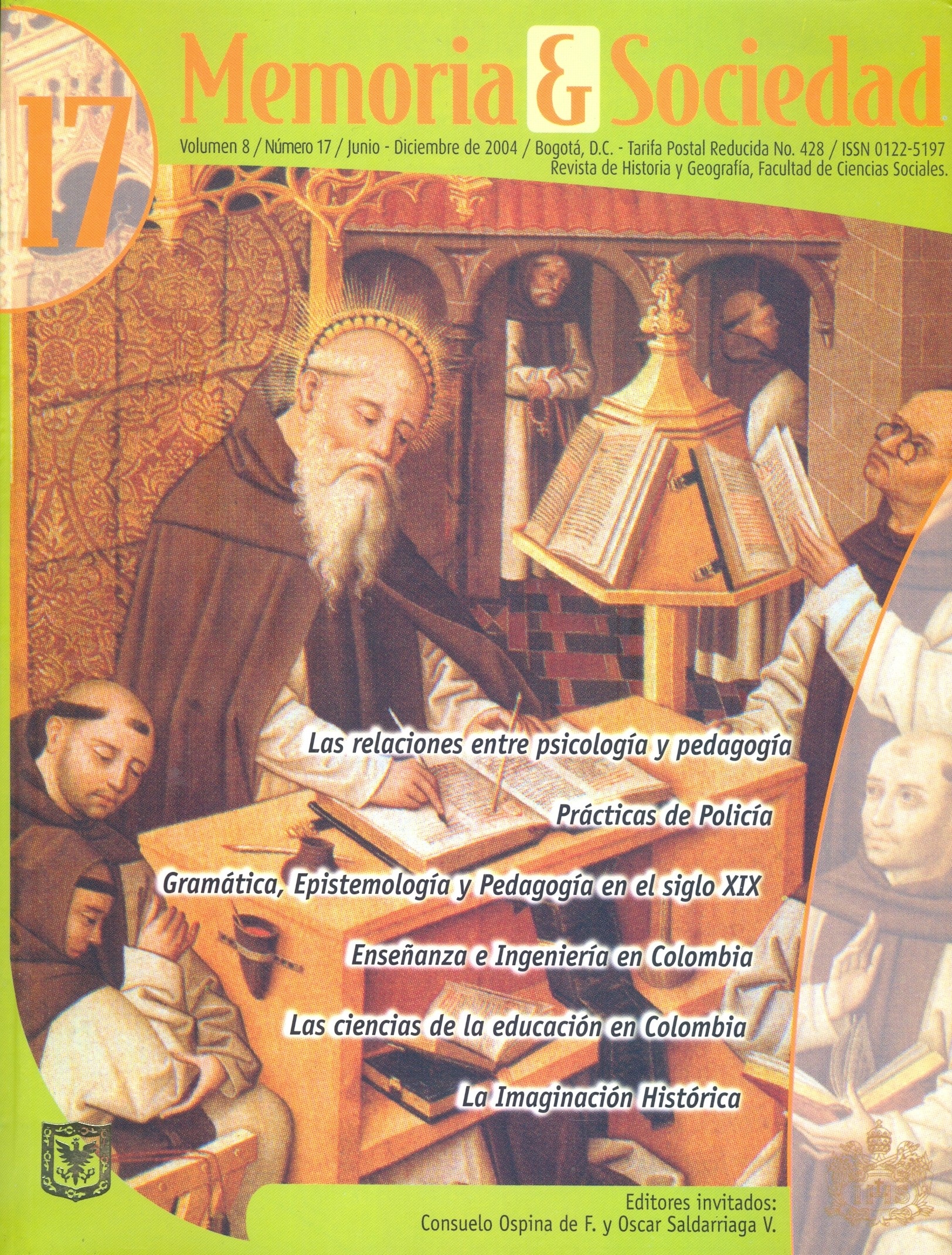Resumen
El presente artículo está centrado en el problema de los vínculos dados entre la comprensión histórica y la imaginación histórica, desde la doble mirada de Ia historia como ejercicio académico y de la enseñanza de la historia. Para que el saber histórico adquiera un sentido de comunicabilidad y de utilidad, se hace condición necesaria la eficiencia de la comprensión histórica. Ella supone una manera específica de relación con el pasado en donde los sujetos del presente, sin verse comprometidos con metas y creencias que les son ajenas, son perfectamente capaces de desprenderse de las suyas para sumergirse en un universo que en principio se les aparece como extraño. El autor del texto, propondrá como indispensable para ello una disposición a la empatía como logro, además del uso de la imaginación dada en tres niveles diferentes que se encuentran conectados entre sí: las cosas que se dan en la imaginación, las suposiciones y las cosas que se hacen con imaginación. El artículo partirá de las dificultades teóricas que representa pensar el uso de la imaginación en la historia (las relaciones dadas entre imaginación y evidencia), para concluir al final que sin imaginación, el conocimiento histórico permanece estático.La revista Memoria y Sociedad se encuentra registrada bajo la licencia Creative Commons Reconocimiento 4.0 Internacional. Por lo tanto, esta obra se puede reproducir, distribuir y comunicar públicamente en formato digital, siempre que se reconozca el nombre de los autores y a la Pontificia Universidad Javeriana. Se permite citar, adaptar, transformar, autoarchivar, republicar y crear a partir del material, para cualquier finalidad (incluso comercial), siempre que se reconozca adecuadamente la autoría, se proporcione un enlace a la obra original y se indique si se han realizado cambios. La Pontificia Universidad Javeriana no retiene los derechos sobre las obras publicadas y los contenidos son responsabilidad exclusiva de los autores, quienes conservan sus derechos morales, intelectuales, de privacidad y publicidad.
El aval sobre la intervención de la obra (revisión, corrección de estilo, traducción, diagramación) y su posterior divulgación se otorga mediante una licencia de uso y no a través de una cesión de derechos, lo que representa que la revista y la Pontificia Universidad Javeriana se eximen de cualquier responsabilidad que se pueda derivar de una mala práctica ética por parte de los autores. En consecuencia de la protección brindada por la licencia de uso, la revista no se encuentra en la obligación de publicar retractaciones o modificar la información ya publicada, a no ser que la errata surja del proceso de gestión editorial. La publicación de contenidos en esta revista no representa regalías para los contribuyentes.


